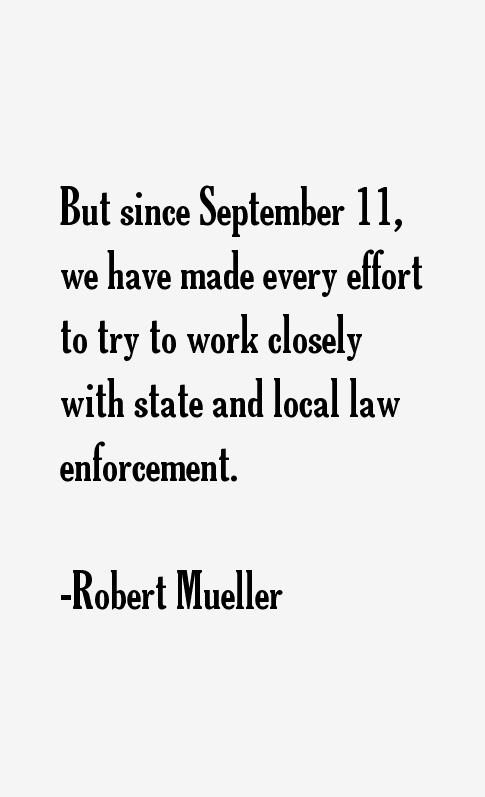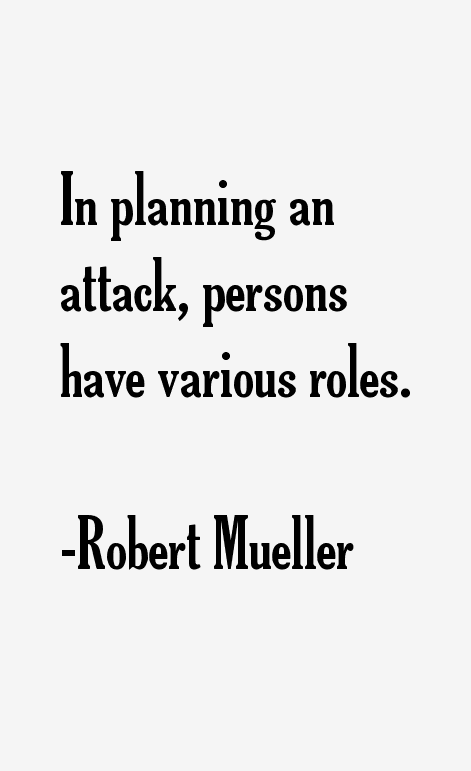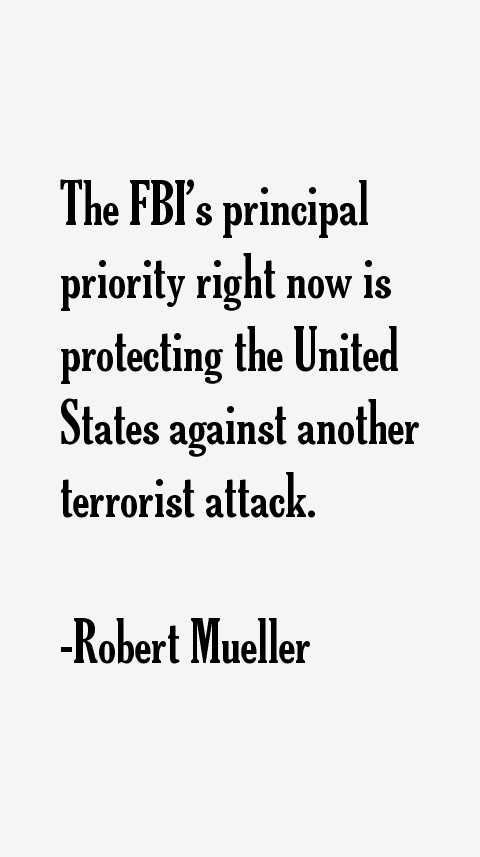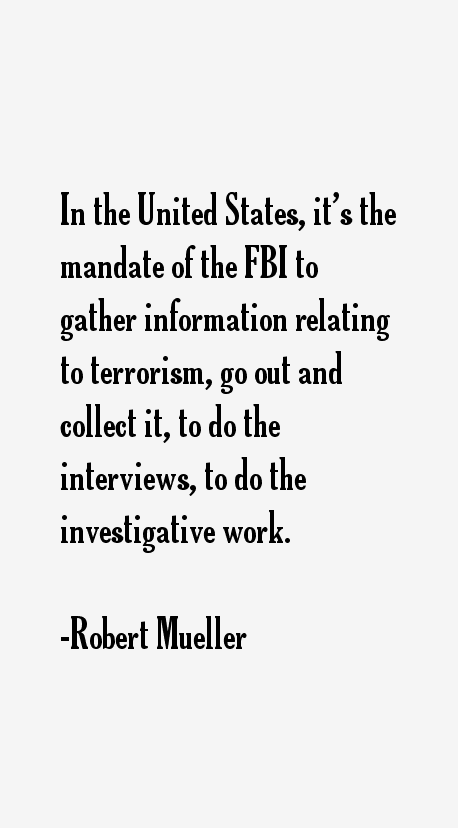Robert Mueller Quotes & Sayings (Page 2)
Robert Mueller quotes and sayings page 2 (public servant). Here's quote # 11 through 20 out of the 33 we have.

“But since September 11, we have made every effort to try to work closely with state and local law enforcement.”

“In planning an attack, persons have various roles.”

“The FBI's principal priority right now is protecting the United States against another terrorist attack.”

“But we had - I think if you look at law enforcement 10 years ago, if you look at the challenges, the FBI was focused excessively on what was happening in the United States.”

“In order to be successful against each of these threats, we have to have a presence overseas, work closely not only with our counterparts in the law enforcement community, but also with the intelligence community.”

“As I said before, there are often disagreements as to what a particular set of facts mean. That is not at all unusual, and one shouldn't read into it more than is there.”

“I would say in just about every investigation we have, there will be differences of opinion, where you have partial facts, as to what those facts mean.”
“If you look at the 19 hijackers who came to the United States in Sept. 11 to commit those acts, if you'd looked at them before they got onto a plane, you could probably say the same thing. There were various levels of expertise, various levels of competence.”
“I was in my office when - on 9/11. I think I had a number of meetings scheduled. I was just getting to know the bureau. And somebody walked in and said the first plane had - or a plane had struck the World Trade Center, one of the towers.”

“In the United States, it's the mandate of the FBI to gather information relating to terrorism, go out and collect it, to do the interviews, to do the investigative work.”
Robert Mueller Quotes Rating
No Ratings Yet
Leave A Comment
























